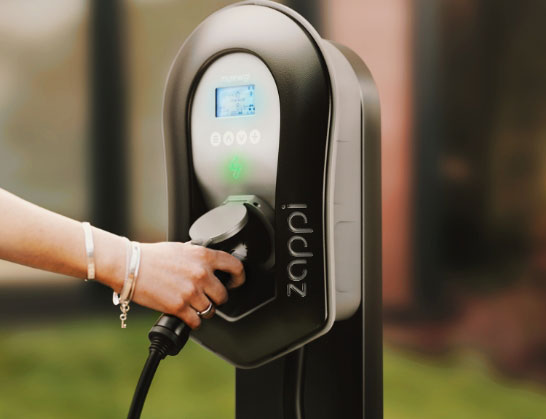How to Harness Solar Energy Solutions for a Sustainable Future
In an era marked by increasing environmental challenges and the urgent need for sustainable practices, harnessing solar energy solutions has emerged as a pivotal approach toward achieving a greener future. As the most abundant renewable energy source, solar energy offers a myriad of benefits that can significantly reduce our carbon footprint and reliance on fossil fuels. This article delves into the various methods and technologies associated with solar energy solutions, exploring innovative strategies that individuals, communities, and businesses can adopt to tap into this inexhaustible resource. By understanding how to effectively implement solar energy solutions, we can not only contribute to the mitigation of climate change but also foster energy independence and economic growth. Join us as we uncover practical steps and inspiring case studies that illustrate how solar energy can be a cornerstone of a sustainable future for generations to come.
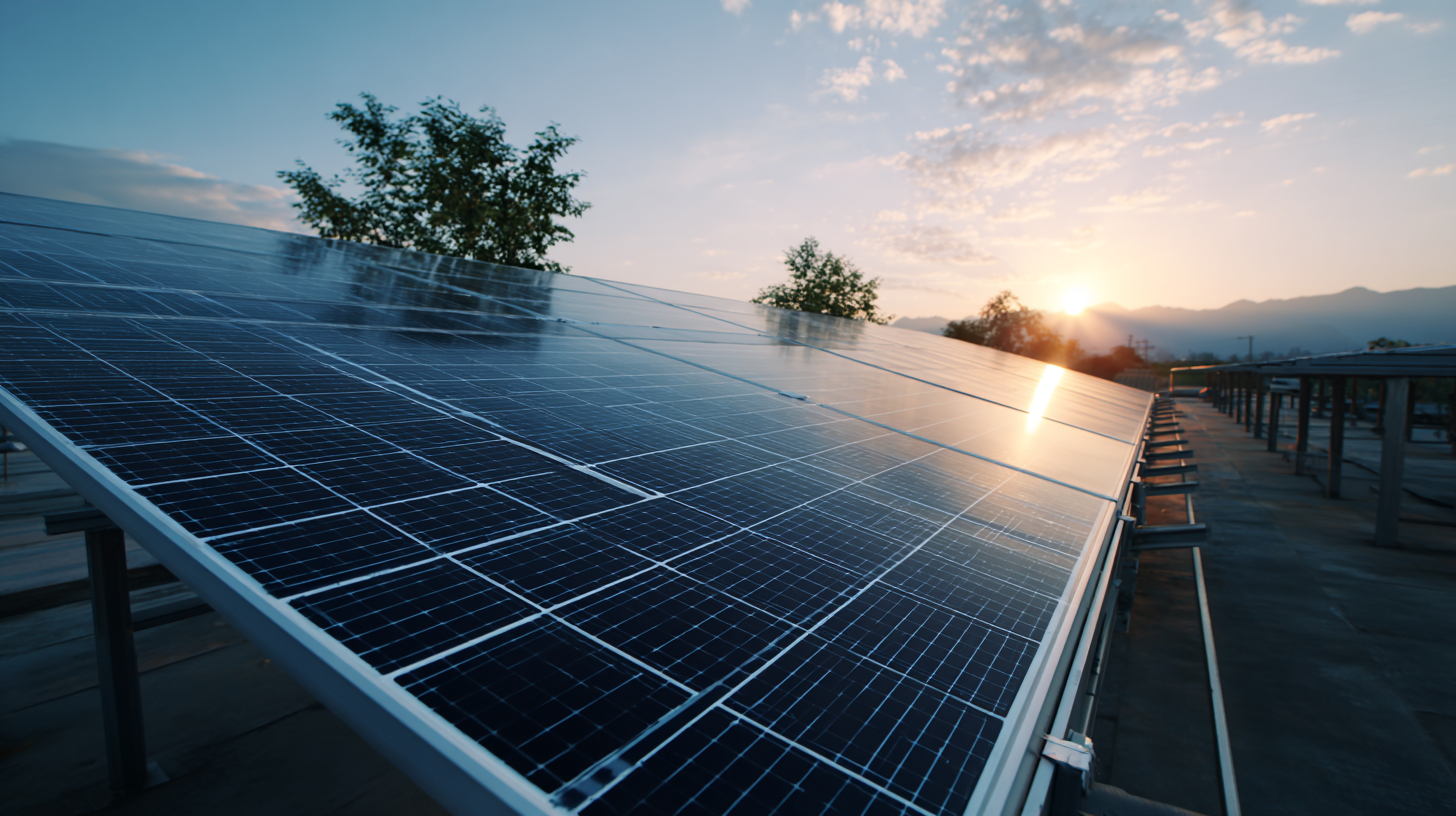
Understanding the Basics of Solar Energy Technologies and Their Benefits
Solar energy, derived from the sun's radiation, represents a clean and renewable power source that is rapidly gaining traction in our quest for sustainability. The technology behind solar energy has evolved dramatically over the years, encompassing photovoltaic systems that convert sunlight directly into electricity and solar thermal systems that harness heat for residential and commercial uses. Understanding these basic technologies is essential for anyone looking to utilize solar energy effectively. Bifacial solar panels and concentrated solar power (CSP) systems are among the innovations that are increasing efficiency, making solar installation more viable and cost-effective for diverse applications.

The benefits of solar energy extend far beyond its environmental advantages. By reducing reliance on fossil fuels, solar energy contributes to lower greenhouse gas emissions and mitigates climate change. Additionally, solar power can lead to significant savings on electricity bills over time, offering economic incentives for both households and businesses. As energy prices continue to rise and the urgency for adopting sustainable practices grows, investing in solar energy solutions not only fosters energy independence but also supports a resilient energy future.
Identifying the Most Suitable Solar Energy Solutions for Your Needs
When identifying the most suitable solar energy solutions for your needs, it is crucial to consider the latest advancements in technology and public perspectives. Recent developments in floating photovoltaic systems showcase their potential for higher energy yields and greater efficiency compared to traditional ground-based installations. These floating solutions can be particularly advantageous in areas where land resources are constrained, allowing for the utilization of water bodies to generate electricity without competing for valuable land space.
Furthermore, public acceptance plays a significant role in the successful implementation of solar energy projects. Studies, such as those exploring attitudes towards solar energy adoption in Mexico, highlight the importance of understanding community perspectives and the factors that influence them. This insight can guide the development of tailored solar solutions that resonate with the local populace, promoting greater acceptance and involvement. In addition to community considerations, incorporating advanced technologies like Industry 4.0 can enhance the efficiency and sustainability of solar energy systems, making them more accessible and attractive to potential users.
Solar Energy Solutions Comparison
This bar chart compares different solar energy solutions based on their efficiency and cost-effectiveness. The data showcases common solar energy technologies, their efficiency rates, and approximate installation costs per watt.
Implementing Solar Energy Systems: Key Steps for Homeowners and Businesses
Implementing solar energy systems is an essential step toward achieving sustainability for both homeowners and businesses. The first key step is to conduct a thorough assessment of energy needs. Homeowners should evaluate their electricity consumption patterns, while businesses can analyze their operational energy use. By understanding these needs, individuals can determine the appropriate size and capacity of the solar system required to meet their demands effectively.

Once assessment is complete, the next vital step is to explore financing options and incentives available for solar installations. Many governments offer tax credits, rebates, or grants aimed at encouraging the adoption of renewable energy. Homeowners and businesses can also consider different financing models, such as power purchase agreements or leasing options, which can significantly reduce upfront costs. Engaging with experienced solar providers can help navigate this landscape and ensure a successful installation process. With proper planning and investment, transitioning to solar energy can provide long-term financial savings and contribute to a more sustainable future.
Maximizing Efficiency: Tips for Optimizing Your Solar Energy Setup
When optimizing your solar energy setup, the first step is to assess the location and angle of your solar panels. Positioning panels to face true south (in the Northern Hemisphere) and tilting them at the right angle can significantly enhance energy absorption. Regularly cleaning your panels and ensuring they are free from obstructions, such as leaves or debris, plays a vital role in maximizing sunlight exposure and, consequently, performance.
Another key strategy is to invest in high-efficiency solar panels. Choosing panels with a higher efficiency rating allows you to generate more electricity from the same amount of sunlight, ultimately reducing the space required for installation. Additionally, employing smart technology, such as solar inverters with maximum power point tracking (MPPT), can further improve energy conversion efficiency. The integration of energy storage solutions, like batteries, can also help manage energy usage effectively, providing power during non-sunny periods and optimizing overall energy consumption.
Exploring Financial Incentives and Rebates for Solar Energy Adoption
As the world increasingly recognizes the importance of sustainable energy solutions, solar power stands out as a viable option for reducing our carbon footprint. However, the initial investment in solar technologies can be daunting. Fortunately, various financial incentives and rebates have emerged to facilitate the adoption of solar energy systems. Homeowners and businesses can often benefit from federal and state tax credits, which significantly reduce the cost of installation. Additionally, many local governments offer rebates that can further offset expenses, making solar energy more accessible.
**Tips for Maximizing Financial Incentives**: First, research available programs in your area, as these can vary widely. Websites of local energy offices or government initiatives often provide comprehensive information. Secondly, consider timing your installation; some rebate programs have limited funding and are available on a first-come, first-served basis. Finally, consult with solar providers who are well-versed in available financial incentives to ensure you are taking advantage of every opportunity.
Moreover, financing options such as solar loans or power purchase agreements (PPAs) can also help in easing the financial burden. By leveraging these options, prospective solar users can spread costs over time while still ensuring they invest in a sustainable future. Engaging with community solar programs might also provide ways to access solar benefits even if individual installations are not feasible.
Related Posts
-

Discover the Finest Solar Energy Solutions from China’s Leading Manufacturing Experts
-

Unlocking the Power of Solar Energy: A Step-by-Step Guide for Beginners
-

The Future of Sustainable Living with Solar Energy Solutions
-
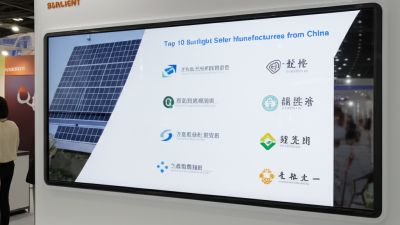
Top 10 Sunlight Solar Manufacturers from China at the 137th Canton Fair
-
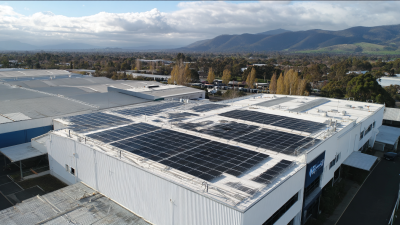
Ultimate Guide to Choosing the Right Commercial Solar Panel for Your Business
-
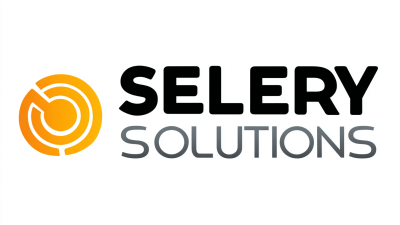
Maximizing Value with After Sales Support and Low Maintenance Costs for Solar Energy Solutions


